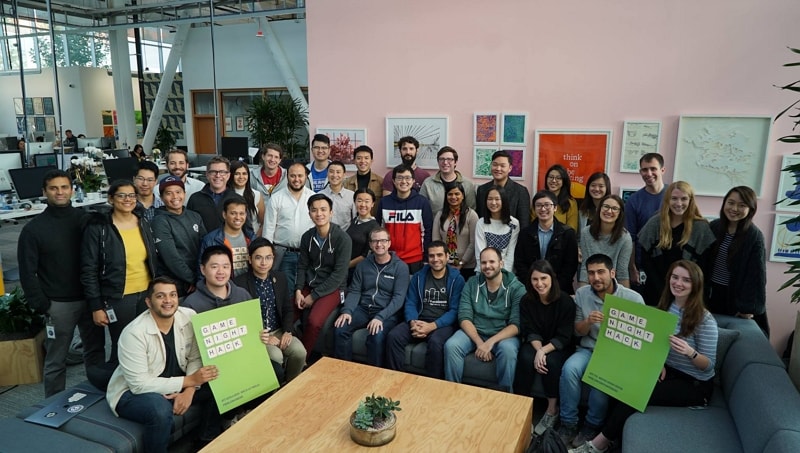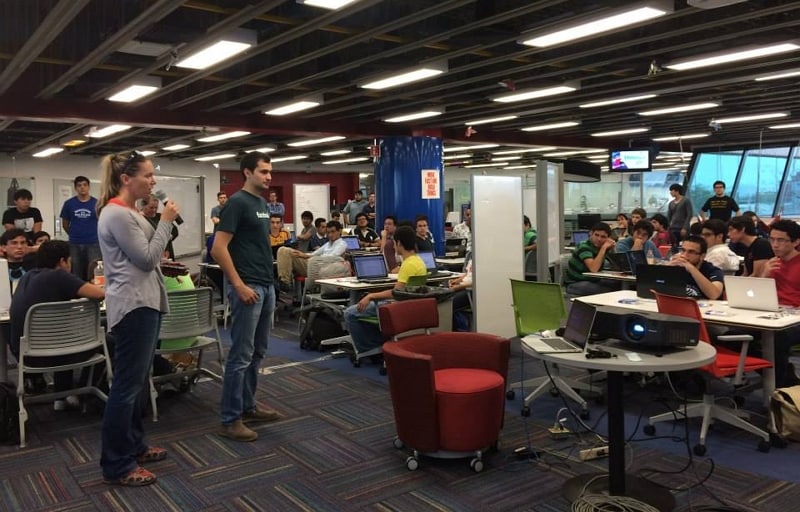Wondershare Mockitt - Best Tool for Hackthon
Hackathon - A Competition for Designers
- Complete guide for beginners to know about Hackathon.
- Useful tips and normal problems state for your competition.
- Creative Hackathon ideas for your inspiration.
- Ways to find and participate the Hackathon.

What Exactly is Facebook Hackathon?
At Facebook, hackathons are a big tradition. Facebook Hackathons have served as the foundation for some fantastic ideas. It has allowed Facebook employees to try out brilliant ideas and collaborate with others in a fun environment. Every few months, a few of Facebook's engineers unleash their skills in challenging, all-night coding sessions and produce products that hit the external and internal versions of the site/app within weeks. The first official Facebook Hackathon was held in 2007; they have provided the most exciting opportunities for Facebook people to make a significant impact in no time.
- Part 1: What is a Facebook hackathon?
- Part 2: Why do people join Facebook Hackathons?
- Part 3: What happens in a Facebook Hackathon?
- Part 4: What do you need to prepare for a Facebook Hackathon?
What is a Facebook hackathon?
A hackathon event is held by Facebook every few months, lasting anywhere from 24 hours to a few days. Employees across the organization from different locations and teams come together to brainstorm and create something they believe will add to Facebook's user experience. The hackathon's ground rule is simple- you can't work on anything remotely related to your day job. The hackathon concludes with teams' opportunity to present their ideas to their peers and then select the best ideas by polling. Then, the teams with the best ideas get a chance to show it to the Facebook executive team, including Chris Cox (Chief Product Officer), Jay Parikh (Vice President, of Engineering), Mike Schroepfer- the CTO, and Mark Zuckerberg himself.

Image Source: Facebook
The hackathons are not only limited to Facebook offices. Facebook developer hackathon was held in various colleges such as the University of Michigan, Harvard, and UCLA. Few of Facebook's engineers carry out all-night, competitive hackathons on the campus, and the winners of each campus hack are flown out to Facebook Headquarters, all-expense paid. All the winners then compete against each other by presenting their final prototypes to Facebook engineers. Hackathons are valuable because the engineers can build without constraints, and cool things get shipped because of different ideas.
Why do people join Facebook Hackathons?
Facebook Hackathons provide a chance for engineers and even others to transform an idea into a working prototype. This way, one can also get others excited about the potential of their ideas. Facebook has a culture of builders, and Facebook hackathon projects provide the right time to take any idea, however big or small, crazy or sane, and build it into something real to which people can react. People join Facebook Hackathon because instead of being worried if the idea will scale for more than 900 million people, they can focus on getting their basic project ready. A broader team can further explore this project for quick iteration and betterment.
Hackathon allows people to give a unique perspective to the company for exploring ideas that are not on their product development roadmap. Also, Facebook hackathon ideas enable cross-pollination of team members who don't interact on a day-to-day basis. Facebook's employees also utilize and access the infrastructure and vast resources within the organization to build something exciting. Many of the products from Facebook hackathons such as Facebook groups, Safety Check, and Facebook Chat have evolved into the essential features of the Social media platform.
What happens in a Facebook Hackathon?

Image Source: Facebook
In the early days of Facebook, many regular nights were like hackathons, where someone decided to stay up all night to build a prototype. As the organization grew, people started organizing hackathons to collaborate with different teams to set the ideas into motion. On the day of the hackathon, everyone gathers around 7 pm at the decided place. There is another rule that one has to hack and the ground rule, even if it's their first hackathon. Around 10 pm, the group gets together to have dinner, and then everyone continues to work until around 6 am or till they can.
On campuses, the Facebook developer hackathon is introduced by Facebook engineers, and the teams have about 24 hours to come up with a hack and presentation. The first few hours are spent coming up with an idea and dividing tasks between team members. Then, the rest is to hack it up. The environment is enjoyable, there is music playing in the background, food and assistance is provided, and there is no swag shortage. Usually, 2 hours before the 24-hour mark, hacking concludes. Then demoing starts, and the Facebook staff decides which hacks are the best. The global hackathon takes place in Palo Alto.
Like any other hackathon, a Facebook hackathon involves a lot of coding and no sleep, which ends with a prototype forum where everyone can demo their achievements. The tone of the event is playful, and it is a sign of a good culture where people get excited about innovating something. The fun setting doesn't mean that work is not getting done; a lot takes place at a Facebook hackathon. There have been Facebook hackathon projects such as Facebook Chat that have changed the company's direction in terms of focus and strategy. Hackathons provide a way for many side projects to make a way into the platform, which otherwise might not be possible. At least once a year, something big comes out of the hackathon, and Facebook Hackathons are not only limited to traditional software engineering but almost everything.
What do you need to prepare for a Facebook Hackathon?
The prototype one builds moving an idea from imagination to something tangible that can be played and experienced. This is hugely important for introducing new features. The process is like making a film- the first step is to jot down some ideas, sketch out a storyboard, and then shoot some ideas you edit and refine. Facebook pushes its teams to drive further fidelity in the process. For the preparation stage, you need a reliable and flexible platform. One such online platform is Wondershare Mockitt.

Mockitt is an easy to use tool for UI/UX prototyping. The three main features of it are prototyping, collaboration, and design. Mockitt provides animated prototypes that can turn provocative designs magically into rich and interactive prototypes without any coding. With the vast and component libraries, beginners can work like experts. The tool is efficient for hackathons as it allows everyone in the team to work together in real-time. You can also build up custom libraries and share them with your team. The platform also allows you to mimic the final product with numerous interactive gestures and transitions to create life-like prototypes. As one has limited time building in a hackathon, the drag and drop feature lets designers focus on design by abandoning repetitive work. The tool also has a sketch plugin for accessibility and allows barrier-free communication along with the offline demo.
Apart from having a stable platform to work upon, be familiar with the theme of the hackathon. The idea should be linked to the organization's core or help maintain the balance between user needs and your imagination. Once you know what you want to do, get coding and designing, and don't give up!
